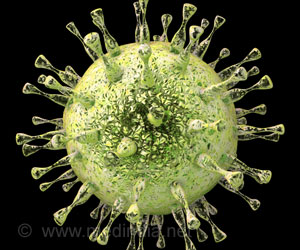- Butter’s high saturated fat content raises LDL cholesterol, increasing heart disease risk
- Excessive butter consumption contributes to obesity and related chronic diseases
- Industrial dairy farming for butter production harms the environment through emissions and pollution
Butter, while tasty and extensively used in cooking, is not considered healthy for a variety of reasons. Regular intake has been linked to an increased risk of cardiovascular disorders, such as coronary artery disease and heart attacks (1). Butter production, particularly from industrial dairy farming, has substantial environmental effects, such as greenhouse gas emissions, water pollution, and habitat damage. Given these considerations, it’s best to consume butter in moderation and look into healthier alternatives like olive oil, avocado, or nut butters, which include good unsaturated fats and other nutrients.
Advertisement
Why Eating Too Much Butter Is Unhealthy?
Butter includes a significant amount of saturated fats, which have been shown to raise LDL (bad) cholesterol levels in the blood (2). High levels of LDL cholesterol increase the risk of heart disease and stroke (3).
Butter has been linked to cardiovascular disease because of its high saturated fat content. Saturated fats can elevate cholesterol levels, causing plaque development in the arteries.
Butter is calorie-dense, which means it contains a lot of calories in a small serving. Excessive calorie intake, particularly from high-fat foods such as butter, can contribute to weight gain and obesity. Obesity is a major risk factor for chronic diseases like type 2 diabetes and several malignancies.
Butter includes lactose and casein, both of which some people may be sensitive or allergic to. Lactose intolerance can cause digestive discomfort, bloating, gas, and diarrhea in those who are unable to digest it adequately. Similarly, some people may be allergic to casein, resulting in symptoms like hives, swelling, or difficulty breathing.
According to certain research, the saturated fats in butter may cause inflammation in the body. Chronic inflammation has been related to a variety of health problems, including arthritis, inflammatory bowel disease, and heart disease.
Advertisement
Environmental Impact of Dairy Production
Butter production, particularly intensive dairy farming operations, can have negative environmental consequences. These include greenhouse gas emissions from cattle, water pollution from fertilizer and manure runoff, and habitat degradation caused by land clearance for grazing.
Advertisement
Butter is Not Suitable For Vegans or Lactose Intolerant People
Butter is a dairy product, hence it is not suitable for vegan diets. Individuals with lactose intolerance may also need to limit their butter consumption due to the lactose level. Vegans and lactose-intolerant people can look into plant-based alternatives to butter, such as vegan butter spreads or oils.
Taking these elements into account can help people make more informed food decisions that improve general health and well-being.
References:
- Saturated Fatty Acids and Cardiovascular Disease: Replacements for Saturated Fat to Reduce Cardiovascular Risk
Briggs MA, Petersen KS, Kris-Etherton PM. Saturated Fatty Acids and Cardiovascular Disease: Replacements for Saturated Fat to Reduce Cardiovascular Risk. Healthcare (Basel). 2017 Jun 21;5(2):29. doi: 10.3390/healthcare5020029. PMID: 28635680; PMCID: PMC5492032. - Butter increased total and LDL cholesterol compared with olive oil but resulted in higher HDL cholesterol compared with a habitual diet
Engel S, Tholstrup T. Butter increased total and LDL cholesterol compared with olive oil but resulted in higher HDL cholesterol compared with a habitual diet. Am J Clin Nutr. 2015 Aug;102(2):309-15. doi: 10.3945/ajcn.115.112227. Epub 2015 Jul 1. PMID: 26135349. - Cholesterol, coronary heart disease and stroke: a review of published evidence from observational studies and randomized controlled trials
Huxley R, Lewington S, Clarke R. Cholesterol, coronary heart disease and stroke: a review of published evidence from observational studies and randomized controlled trials. Semin Vasc Med. 2002 Aug;2(3):315-23. doi: 10.1055/s-2002-35402. PMID: 16222621.
Source-Medindia



